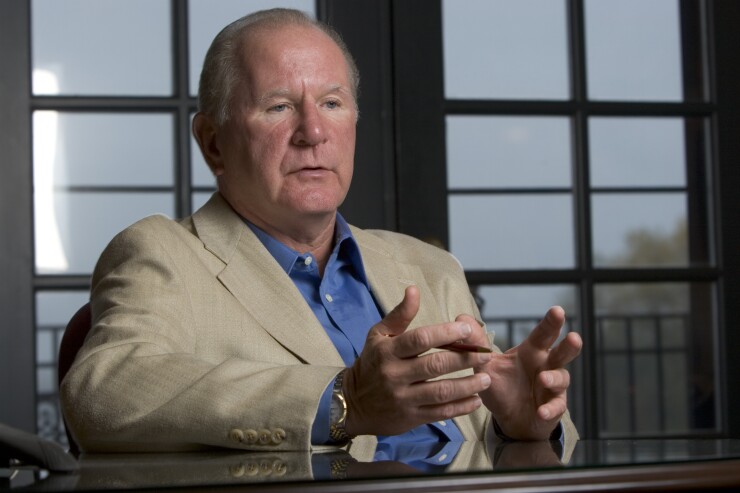Longtime TCF Financial Chairman and CEO William Cooper, who deftly steered his company through two crises with both a keen understanding of banking and a maverick personality, passed away Tuesday. He was 73.
Cooper retired as CEO of the Wayzata, Minn., company 13 months ago after nearly 30 years at the helm but remained its chairman. He had been battling cancer, according to a company spokesman.
“The entire TCF family is deeply saddened by the passing of Bill Cooper, and we will miss his passion for our company, its people, and his strong leadership of our board of directors,“ Craig Dahl, CEO of the $21 billion-asset company, said in a press release.

During his three decades at the helm, Cooper transformed TCF from a failing thrift into a Midwestern powerhouse. He made a name for himself in the industry by for his off-the-cuff style and tough-guy image. He was a fierce protector of his company, and demonstrated an ability to change strategies quickly when needed and help TCF adapt to the times.
Cooper joined TCF in 1985, as it was buckling under the weight of risky loans and arbitrages. Within months, he raised capital and began carving out a niche of serving working-class customers. He was a pioneer of free checking, and opened TCF’s doors seven days a week as part of a broader effort to target what Cooper called the “Joe Lunch-Bucket crowd.”
“If you get a million and a half people who keep a thousand bucks in the bank, that’s a lot of money,” he said in the 2015 interview.
After briefly retiring from the company in 2006, Cooper returned to the bank in 2008 to lead it through the financial crisis. After the housing market collapsed, he shifted the bank’s focus to specialty lending, and it began serving commercial customers on a national scale.
“When the hurricane hits, everybody looks toward the CEO, and they want to see someone steering the ship, smoking a cigar and telling people what to do,” he said in a 2014 interview with American Banker. “You can’t be afraid.”
By the time he stepped down as CEO at Dec. 31, 2015 – and was succeeded by Dahl – Cooper had built a company that consistently outperformed its peers, on metrics ranging from loan growth to profitability. That’s due, in part, to Cooper’s strategy to build up a strong base of low-cost deposits.
Cooper may be best known for his high-profile battle with the Federal Reserve. TCF – a leading card issuer – in 2010 filed a lawsuit against the Federal Reserve Board, for imposing caps on debit and credit card transaction fees. The caps were mandated by the Dodd-Frank Act.
In the 2014 interview with American Banker, Cooper said he is proud that the lawsuit sparked a conversation in the industry – and that he got a concession from the regulators. The Fed set a cap of 21 cents; it had initially proposed 12 cents.
TCF dropped its lawsuit in 2011, shortly after the Fed issued its final rule.
“It was risky to do,” Cooper told American Banker. “You don’t want to sue your regulator.”
Before Cooper was a banker, he served as a beat cop in Detroit, joining the police force in 1963, at the height of the civil rights movement. The job helped him pay for his degree at Wayne State University, where he graduated in 1967.
Before joining TCF, he held positions at Touche Ross, a predecessor of Deloitte; the former Michigan National Bank in Detroit, which is now part of Bank of America; Huntington Bank in Columbus, Ohio; and American Savings and Loan in MIami.
In 2015, he was the recipient of American Banker’s





